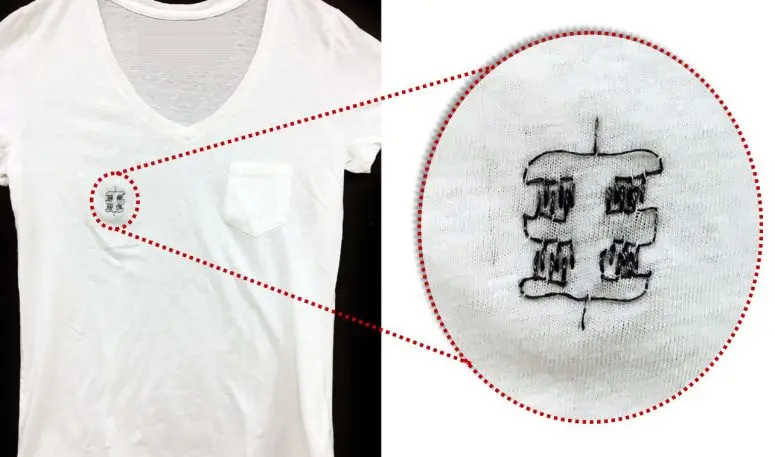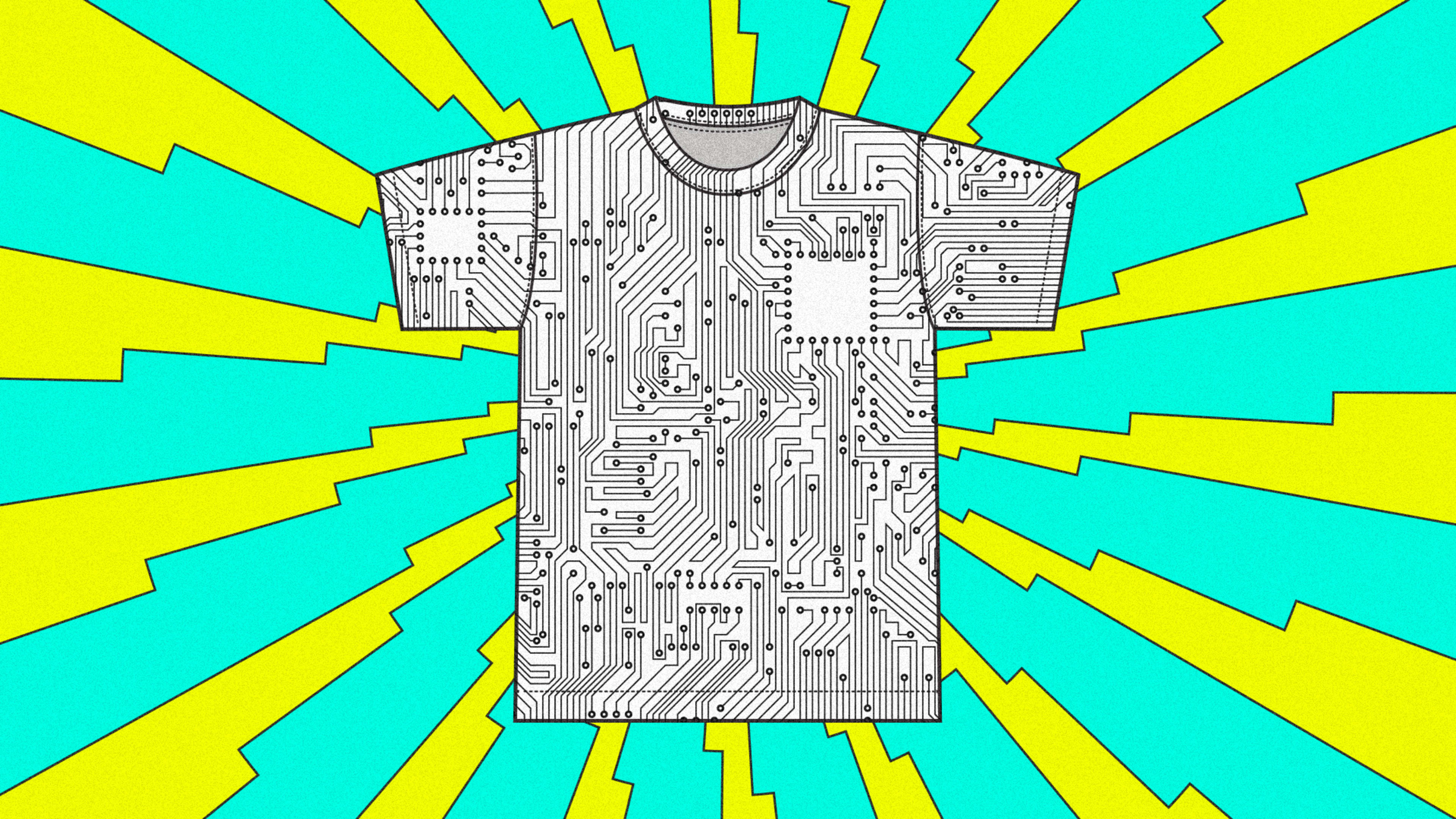The idea of smart clothing is nice, but most people don’t want to wear a T-shirt that tracks your health if that means carrying a heavy battery. It’s simply not practical for everyday use–for instance, how do you clean the garment?–which is one of the reasons smart clothing probably has not caught on. Fortunately scientists may have found a solution.
An engineering team at the University of Massachusetts Amherst led by material scientists Trisha L. Andrew have found a way to store energy in fabrics without having to use bulky power cells.
The method is a special sewing technique that uses vapor-coated conductive threads with a polymer film to embroider a flexible mesh of electrodes on a textile, allowing it to store enough energy to power assorted electronics, from temperature sensors and motion trackers to haptic feedback devices. In a press release, Andrew claims that the method can be “scaled up and remain cost-effective” for mass production.

The new technology–which is described in the latest issue of the journal ACS Applied Materials & Interfaces–could enable a smart garment to monitor your vitals or guide you through a city using gentle haptic taps. The research team is working with the university’s Amherst Institute for Applied Life Sciences’s Personalized Health Monitoring Center to make a garment that can track a patient’s gait and joint movements throughout an entire day and provide important data on injuries and illnesses.
After many years of waiting, it seems that we are nearing the point where people will be able to use smart clothing on a daily basis–and not feel like they’re experimenting with the future.
Recognize your brand’s excellence by applying to this year’s Brands That Matter Awards before the early-rate deadline, May 3.
